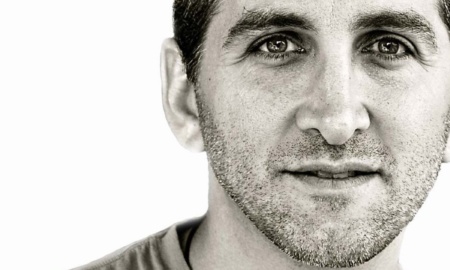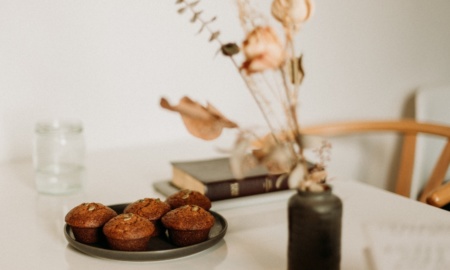I wasn’t planning to write about anxiety today. But yesterday’s events at the Boston Marathon just flipped a switch in me. I realized how much just being alive these days gives all of us ample reason to be anxious – random acts of violence, difficult economics, increasing rates of diseases, even just keeping up with all of the things in our food and environment that might harm us or our loved ones … Add to this our caffeine-driven, over-stressed work lives … Who wouldn’t be anxious?
There are many types of anxiety – from occasional circumstantial anxiety, for example, stomach butterflies before an important event, stage fright, or going-to-the-dentist jitters, to full blown generalized anxiety disorders (GAD) with panic attacks and debilitating phobias.
Anxiety also has various guises: insomnia, depression, fatigue, addictions (often used to self-medicate), job or relationship paralysis for fear of taking a chance or making a change. Anxiety can also cause illnesses – for example, chronic anxiety can lead to stress which leads to cortisol dysregulation which leads to insulin resistance and even diabetes. It can also lead to heart disease. Takotsubo syndrome, which causes structural changes in the heart, can be a result of chronic anxiety.
I’ve treated numerous patients struggling with anxiety – from mild to severe. They’ve come to me taking (sometimes dangerous and addictive) medications just to be able to get out of bed and face the day, drive to work, give a presentation, or get to sleep. For many it is a tortured way to live. Others are self-medicating with food, alcohol, marijuana, or any number of substances just to cope and function.
It’s a tough world we live in.
Learning how to manage anxiety is like learning a new language of the mind. It may take time. But it is learnable and it is a worth the investment in yourself. It is also a worthy skill set to impart to children from a young age, if you are a parent.
Over the years I’ve developed tools that I share with my patients. If your anxiety is mild to moderate, these 7 tips may be all you need; if you have severe anxiety – I think you will still find great relief but you may need additional help from an integrative physician and a therapist. These tips are meant to be practiced in conjunction.
Anxiety can affect us in so many ways, from causing us to be chronically worried and distracted by our problems to the point of disrupted sleep and eating, all the way to the extreme of keeping us from getting out there and living life. Life is a precious gift. It is too easy to fritter it away with worry when we can instead learn to live it joyously, with greater ease and comfort. We can’t necessarily change all of the world’s problems – but we can refuse to live as victims.
Name the Feeling
The first step to overcoming anxiety is to recognize it for what it is – a set of feelings that are the result of a series of biological responses to a perceived threat.
Pay attention to what happens when you become anxious? Your heart rate increases, your breathing accelerates, you may start to sweat, and your mouth might get dry. You may feel that you are going to pass out. Or you may have an urge to run, flee. You may have difficulty concentrating or experience memory lapses. You may experience nausea, chest pressure or pain. At bedtime you may be unable to fall asleep. You may feel a sense of impending doom – even that you are going to die. But you are not. These are the signs of anxiety. It is your body’s flight-or-fight response kicking in.
Own Your Mind
The more you pay attention to the anxiety symptoms I described above, the more quickly you’ll recognize when they are coming on. The more you practice mind-body interventions for kicking that reaction in the butt – the better you’ll be at getting over it.
When the feelings start to raise their ugly head, tell yourself, “I am safe – these are just feelings.” Tell it to yourself several times as you are doing very deep, slow breathing in and out. They are just feelings. They are just feelings. They are just feelings.
Try to actually use your breathing to slow your heart rate and breathing down. Do something to interrupt the cycle like slowly drink some cool water. Deliberately relax. Intentionally feel your feet on the ground. Anxiety is just feelings and you are OK!
You have just learned some biofeedback skills! You can learn to consciously practice biofeedback skills using a home biofeedback monitor. HeartMath is one we use with patients in my clinic. If you suffer from more severe anxiety, consider Cognitive Behavioral Therapy (CBT) – a technique that helps you to change your thought patterns from the anxiety chatter to more productive, self-affirming ones. CBT skills are really just great life-skills that I think all kids should be taught from Grade 1! Biofeedback and CBT therapists can be found around the US.
Keep a journal of your experiences as you learn to use these tools – I bet you’ll find that you are starting to succeed in reducing your anxiety!
Embrace Your History
Your genetics: Many of us are born with small variations in our genetic make-up that make us predisposed to anxiety and don't allow us to clear anxiety neurotransmitters as well as others without these variations. So for some of us, our anxiety tends to come on a little easier, be worse and hang on a little longer. One of these genetic variations is the COMT polymorphisms. If you have this you're probably someone whose heart races after caffeine, and maybe can’t even tolerate the adrenaline rush of a scary movie or roller coaster. You can get a simple genetic test, but it's expensive and won't change what you do.
The herbs and supplements below can be of extra help to you. So can avoiding the things that are likely to set you off.
Your history: Some of us grow up in environments that were very anxiety provoking – high stress homes, parents with substance or emotional abuse problems, bullying at school. We grew up actually accustomed to anxiety as our baseline internal milieu – and as a result it weirdly becomes our natural default comfort zone emotion. But it actually doesn’t feel good or comfortable at all. If your childhood hardwired you for anxiety – you can change this simply by deciding you don’t want to feel this way anymore. Good for you! Follow all of the other steps in this article to achieve freedom from anxiety!
Your triggers: Whether your mom's house at Christmas or a TED talk you have to give – we all have triggers that spark our anxiety. Learning what triggers you have can help you avoid the avoidable and prepare well for what you must experience. Preparation might include getting extra rest and exercise ahead of time, working with a therapist to develop a tailored set of skills for the event, and using herbs and supplements to bolster your stress response system prior to the time.
Practice Worry Watching
Most of our anxiety is due to worrying about the future. The reality is that most people spend about 90% of their time worrying about the future or fretting the past – not living in the present. What’s going to happen if… when?
Here’s a way to stop that whole pattern. Allow yourself a certain amount of worry time every day. You can start with an hour and work your way down to 15 minutes. I give myself what I call “my moment of doubt.” It’s like Weight Watchers except it’s Worry Watchers. Instead of being allowed calories, you’re allowed worry minutes.
Set a timer. Find a place to go and worry. I have one patient with 5 kids who goes into her walk-in closet to do it to get some time away from her family. Another who uses her laundry room. Try not to do your worrying in your bedroom or other places you want to associate with relaxation. During your allotted time, worry as hard as you want to. Write your worries down in a worry journal. Knock yourself out. But really, seriously do it. When the time is up, so is your worry for the day. One exception – if you are a pre-sleep worrier, take 5-10 minutes of extra worry time just before bed. Again, not in your bedroom. Write down all of your worries in a journal. Then leave them behind and go to sleep peacefully.
The rest of the time is about redirecting your thoughts to the present moment. Learn to be mindful of your environment – take in what you see, what you feel around you, and in your body. Stay focused on the tasks at hand. If your mind starts to stray to worry – save those thoughts for your next worry session. If you start to have those worry feelings in your body – back to Tips 1 and 2.
Move More
This is simple. Exercise helps your body get rid of anxiety hormones and neurotransmitters like cortisol, epinephrine and norepinephrine more quickly. Walk it off. Dance it off. Do yoga. Jump rope. Go for a run. Punch a punching bag. Do ten push-ups. Repeat. Exercise regularly to help reduce anxiety. Even just 30 minutes a few times a week can make a difference. Breaking a sweat gives you bonus points!
Balance Your Blood Sugar
Hypoglycemia causes the same symptoms as anxiety. Seriously. Because when your body is low in glucose your brain goes into red alert to let you know that energy is needed or you could eventually die. Keeping your blood sugar steady lets your brain know you're ok and prevents those anxious feelings.
Here are the basics: Eat a balanced, non-sugary breakfast and don’t skip meals. Eat a good quality protein at each meal and snacks, eat something every few hours, and include high quality fats (olive oil, walnut oil, coconut oil, nuts and seeds) at each meal. Avoid foods (and non-food junk) that lead to blood sugar drops. Sugar, white carbohydrates, and caffeine are the most common examples.
It gets a little more complicated in that food sensitivities and gluten intolerance can cause inflammation in your body, and when inflammation runs amuck, it fuels anxiety. So an elimination diet can sometimes help you get to the bottom of your anxiety and there might be certain foods that you need to avoid to support your mental well-being. There's a strong connection between gut health and mental health, too.
Herbs and Supplements for Reducing Anxiety
Adaptogens
Adaptogens are a class of herbs that safely, gently, and effectively regulate the body’s stress response via their tonic actions on the adrenal glands. Examples include Ashwagandha (Withania somnifera), Rhodiola (Rhodiola rosea), Eleutherococcus (Eleutherococcus senticosus), Reishi mushroom, Ginseng (Panax ginseng) , and Schisandra (Schisandra chinensis). Adaptogens were first scientifically evaluated for their ability to reduce stress and improve stamina and strength in high performance athletes and workers in the former Soviet Union. Many of them are herbs that have long been used traditionally in Asia and Europe. They are meant to be taken daily, over a period of 3 months to a year for optimal results. They are safe for pretty much all adults (not for pregnant women, and if you are on medications for an autoimmune disease talk with your doctor first) and some can be used with children, too (check with your child’s doc).
B-Complex
B vitamins are necessary for the production and breakdown of neurotransmitters involved in modulating anxiety. I recommend my patients to take B-complex with active folate and B-12 daily.
Essential Fatty Acids
Our nervous system requires essential fatty acids for healthy functioning. They can be obtained from foods that contain them, for example, cold water fish, walnuts, and flax seed oil all contain different types. They can also be obtained by supplementation – which I recommend as an addition to a healthy diet if you have anxiety symptoms. There are many excellent brands.
Lavender Oil
The beautiful, fragrant lavender is also one of our most effective medicines for the treatment of chronic – and even acute – anxiety. Taken on a regular basis about an hour before sleep, the European lavender extract product Lavela has demonstrated efficacy favorable to that of benzodiazapines in reducing anxiety, with none of the side effects or addictive potential. It is fast becoming a mainstay in my medical practice. I have recommended it to family members, and plan to use it to prevent my own test anxiety when I next take my family medicine boards – it has been shown to help reduce text anxiety in nursing students! Lavender oil can also be used as aromatherapy in a diffuser. On your pillow before sleep, in a bath, or a few drops applied topically to reduce acute anxiety symptoms. You might want to carry a small bottle of the oil with you in your bag.
Additional herbs that I use in my clinical practice to reduce anxiety include
- Passion Flower (Passiflora incarnata)
- Lemon balm (Melissa officinalis)
- Chamomile (Matricaria recutita)
- St. John's wort (Hypericum perforatum)
Typically these herbs are combined in a liquid extract and taken together, about 2-5 mL one to several times/day depending on the severity of the anxiety and at the higher end to promote sleep.
Magnesium
Magnesium deficiency is quite common and not only contributes to anxiety, but to heart palpitations associated with anxiety attacks. Magnesium also reduces insomnia. It's my most commonly recommended supplement for anxiety. Dose:150 – 600 mg/day of Magnesium citrate or glycinate.
L-theanine
L-theanine is an amino acid derived from green tea. Able to cross the blood-brain barrier, at recommended doses it safetly imparts a sense of calm and well-being, reduced mental stress and anxiety, and improves memory and cognitive function. It may interact with GABA and dopamine receptors in the brain, explaining its actions. While it is found in tea and coffee, the supplement allows you to get the benefits without the caffeine – which worsens anxiety for many.
Kava kava
Kava kava is an excellent “emergency remedy” for a panic attack, and is great for use when there is stage fright, test anxiety, or fear of flying. Three to five drops is often a sufficient dose of kava. I do not recommend it for regular or long-term use.
Taurine
Taurine is an amino acid that helps quiet down excitatory signals in the brain. A typical dose is 250 mg- 1000 mg/day.
If You're on Medications for Anxiety
If you are on medications for anxiety, please work with a skilled physician, licensed naturopath, or herbalist if you wish to transition to using herbs as an adjunct or replacement. This can be done successfully, but must also be done safely, and some of these herbs can interact with commonly used medications. Also, please do not try to go off of benzodiazapines without medical help; they must be properly tapered to avoid severe and potentially dangerous withdrawal symptoms. If you have severe anxiety, it is important to work with a skilled therapist.
I know how tough anxiety can be. I also know it does not have to be a paralyzing problem for you. Learning to understand and heal your anxiety isn't necessarily a fast or easy road. But it is a road to self discovery and life much more fully lived. I invite you to embrace this challenge – consider it an adventure and enjoy the journey!



